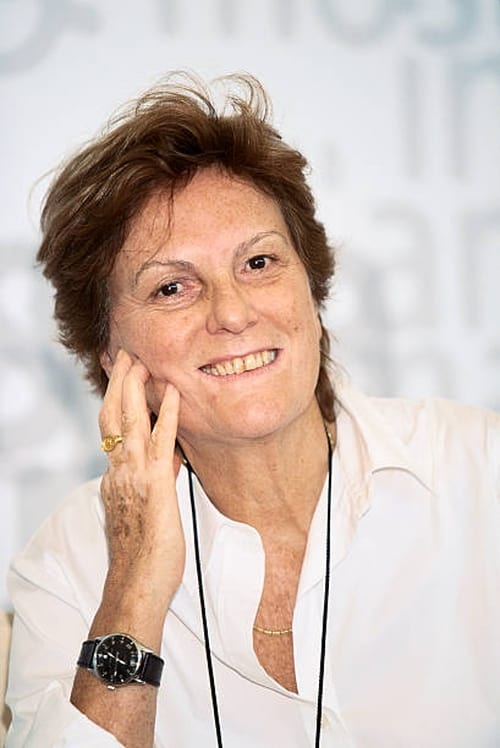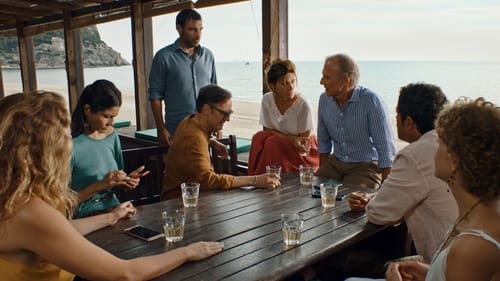
Writer
It explores what happens to a group of long-term friends one night when, during their annual get-together to celebrate a birthday in a villa by the sea, they discover that the world might be ending within the space of a few hours. From that moment on, the time separating them from the possible end of their lives seems to flow differently, both speedily and never-endingly, over a summer’s night which will change their lives forever.

Director
It explores what happens to a group of long-term friends one night when, during their annual get-together to celebrate a birthday in a villa by the sea, they discover that the world might be ending within the space of a few hours. From that moment on, the time separating them from the possible end of their lives seems to flow differently, both speedily and never-endingly, over a summer’s night which will change their lives forever.
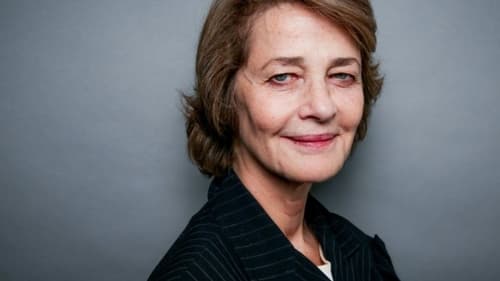
Self (archive footage)
Screen icon Charlotte Rampling has fascinated the world of cinema, fashion and photography with her mysterious and almost inaccessible beauty. A major figure in genre and auteur films, she is unclassifiable: between presence and absence, shyness and audacity, she's always hypnotic, magnetic and fascinating. From her film debut in the mid-1960s in England, to her unconventional career path, through the tragic loss suicide of her older sister that will irremediably mark her acting, this film is a dive into the existential quest of a complex actress, whose every facet is discovered through her roles. Through a conversation with the actress herself, along with personal archives and extracts from her films, this documentary raws a dazzling portrait of her life and career.
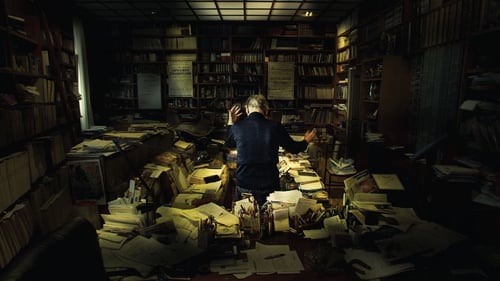
Self
Retrato de Ennio Morricone, el compositor de cine más popular y prolífico del siglo XX, uno de los más queridos por el público, dos veces ganador del Oscar y autor de más de quinientas partituras inolvidables. El documental presenta al Maestro a través de una larga entrevista realizada por Tornatore, testimonios de artistas y directores como Bernardo Bertolucci, Giuliano Montaldo, Marco Bellocchio, Dario Argento, los hermanos Taviani, Carlo Verdone, Barry Levinson, Roland Joffé, Oliver Stone, Quentin Tarantino, Bruce Springsteen, Nicola Piovani, Hans Zimmer y Pat Metheny, música y material de archivo. El documental también se propone revelar el lado menos conocido de Morricone, como su pasión por el ajedrez, que puede tener vínculos misteriosos con su música. Así como el origen en la vida real de algunas de sus intuiciones musicales.

Foreclosed to the future, hope is in the past. Foreclosed the space, hope is inside time. We haven't seen each other again. It was not our mouth and nose that were covered with a mask, but our eyes. We couldn't see each other during the pandemic. The mask was on the eyes like that of the protagonist of Chris Marker's film, La Jetée. Perhaps it is from this film that is so important that one could start looking at the world again,try to figure out how much of what we were has been deposited in the filters of memorial.

Self
Opera Prima is a tribute and a journey through the evolution that cinema has had in Italy. Tayu Vlietstra, a pupil of Bertolucci, carries out an investigation on the first work of six of the most authoritative and beloved Italian directors. The result is an unpublished and precious document that reveals the emotions and expectations of directors grappling with their cinematic debut. Mario Monicelli, Bernardo Bertolucci, Lina Wertmüller, Marco Bellocchio, Liliana Cavani and Francesca Archibugi offer a still current evolution on the needs and difficulties of making cinema in our country.

Liliana Cavani, before becoming an established filmmaker in Italy and in the world, was a young and brilliant documentary filmmaker in Ettore Bernabei's Rai. Just graduated from the Centro sperimentale di cinematografia, in just five years, from 1961 to 1966, Cavani produced over ten memorable programs, ranging from the editing documentary on the great history of the twentieth century to the investigation into the social, economic and cultural transformations of our country. A little-known image journey with a very high documentary and artistic value that reaches up to the TV film on Francesco d'Assisi, the first of his trilogy on the saint is the trait d'union between her documentary career and the debut of her cinematographic career.
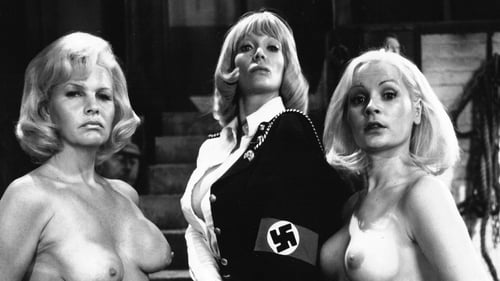
Self -Director
Feature length documentary on the cult sub-genre featuring interviews with Dyanne ‘Ilsa’ Thorne, Malissa ‘Elsa’ Longo, filmmakers Sergio Garrone, Mariano Caiano, Rino Di Silvestro, Liliana Cavani, Bruno Mattei, and many more.

Director
Based on the memoirs of author Curzio Malaparte, diplomatic liaison between the Allied and Italian forces after the defeat of the Nazi's in Italy, director Liliana Cavani's (The Night Porter) film is an unflinching look the collapse of Italian society under the US occupation and the desperate measures required for survival. An unforgettable and controversial film.

Screenplay
Representa varios períodos de la vida de San Francisco: la juventud y la primera conversión en 1206, el proceso que inflige a su padre, el nacimiento del núcleo histórico de Fraternitas y la salida a Tierra Santa hasta la redacción de las reglas y la muerte, dirigiéndose el problema del legado de su mensaje en la diferente interpretación que le darán Chiara y Elia.

Story
Representa varios períodos de la vida de San Francisco: la juventud y la primera conversión en 1206, el proceso que inflige a su padre, el nacimiento del núcleo histórico de Fraternitas y la salida a Tierra Santa hasta la redacción de las reglas y la muerte, dirigiéndose el problema del legado de su mensaje en la diferente interpretación que le darán Chiara y Elia.

Director
Representa varios períodos de la vida de San Francisco: la juventud y la primera conversión en 1206, el proceso que inflige a su padre, el nacimiento del núcleo histórico de Fraternitas y la salida a Tierra Santa hasta la redacción de las reglas y la muerte, dirigiéndose el problema del legado de su mensaje en la diferente interpretación que le darán Chiara y Elia.

Producer
The story of a small community of cloistered nuns, devoted to Santa Chiara, in Urbino.

Director
The story of a small community of cloistered nuns, devoted to Santa Chiara, in Urbino.
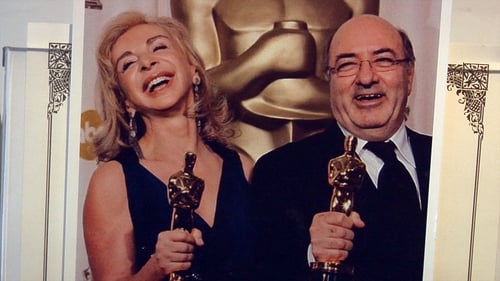
Self
The Documentary Dante Ferretti – Production Designer retraces the life and the career of Dante Ferretti, the famous Italian Artist and Production Designer.

Self
Until the 1970s, Italian cinema dominated the international scene, even competing with Hollywood. Then, in just a few years, came its rapid decline, the flight of our greatest producers, a crisis among the best writer-directors, the collapse of production. But what are the true causes and circumstances of this decline? In an attempt to provide an answer to this question, Di Me Cosa Ne Sai strives to depict this great cultural change. Begun as a loving examination of Italian cinema, the film transformed into a docu-drama that alternates between interviews with the great names of the past and fragments of cultural and political life of the last 30 years. It is a travel diary that shows Italy from north to south, through movie theatres; television-addicted kids; Berlusconi and Fellini; shopping centers; TV news editors; stories of impassioned film exhibitors and directors who fight for their films; and interviews with itinerant projectionists and great European directors.

Self
Grandes directores, dirigidos por Angela Ismailos, incluye conversaciones con diez de los más grandes directores vivos del mundo: Bernardo Bertolucci, David Lynch, Liliana Cavani, Stephen Frears, Agnès Varda, Ken Loach, Todd Haynes, Catherine Breillat, Richard Linklater y John Sayles. La película documenta el viaje de Ismailos de descubrir las personalidades creativas detrás de la cámara. Ismailos explora la evolución artística de los cineastas y la identidad personal, el papel de la política y la historia sobre su trabajo y la agonía y dilemas en el proceso creativo. También examina los desafíos de ser un artista en una época de globalización y mercantilismo. (FILMAFFINITY)

Director
Esta miniserie de TV (dos episodios) narra la relación entre el científico Albert Einstein y su primera mujer, Mileva Maric.

Director
Live from La Scala Saturday 07 July 2007. In this live performance of Giuseppe Verdi's opera, Violetta, a courtesan much wooed by Parisian society, organises a grand party that is attended, amongst others, by the young Alfredo Germont. He confesses his feelings to Violetta, who is already suffering from consumption. She vacillates between genuine affection and a realistic assessment of her situation as a "fallen woman", which precludes any lasting relationship with a man.

Director
Part of Tutto Verdi series - Macbeth (2006) Parma. Macbeth is one of the most multi-layered, profound and demanding roles that Verdi ever wrote for a baritone and the Italian singer Leo Nucci is arguably the most distinguished in his field. The role has repeatedly brought him lasting success and he enacts it with an intensity that only the very experienced stage personality can muster. French singer Sylvie Valayre is known for her versatile interpretations of spinto and dramatic coloratura soprano parts, especially for particularly gruelling roles like Lady Macbeth. Supported by Italian bass Enrico Iori as Banco and tenor Roberto Iuliano as Macduff, they make up a wonderful cast under the baton of Bruno Bartoletti, musical director of the Teatro Regio di Parma.

Self
After shooting to fame with Federico Fellini’s “La Dolce Vita” (1960), actor Marcello Mastroianni (1924-1996) starred in more than 160 films in his nearly half-a-century career. Directors Mario Canale and Annarosa Morri look into the melancholic charm of one of the most famous Italian actors through interviews with his two daughters, Barbara and Chiara; directors Fellini and Luchino Visconti; actresses Claudia Cardinale and Anouk Aimee; and in archival footage of Mastroianni himself. The subject matter ranges from Mastroianni’s passion for kidney-bean pasta and his addiction to the telephone to his famous laziness, humility and talent. Shown in black-and-white, Mastroianni — elegantly holding a cigarette in between his fingers — is undeniably the dandy.

Co-Writer

Director

Screenplay
Tom Ripley es un refinado y cruel traficante de obras de arte que se ha retirado a vivir al Véneto (Italia) con una violonchelista. Inesperadamente sus negocios se complican, pero en esta ocasión no quiere intervenir personalmente; lo que quiere es poner a prueba la honradez de un honrado padre de familia gravemente enfermo.

Director
Tom Ripley es un refinado y cruel traficante de obras de arte que se ha retirado a vivir al Véneto (Italia) con una violonchelista. Inesperadamente sus negocios se complican, pero en esta ocasión no quiere intervenir personalmente; lo que quiere es poner a prueba la honradez de un honrado padre de familia gravemente enfermo.

Director
Conducted by Riccardo Muti, the master of the Scala in Milan for twenty years, the Verdian melodrama unfolds before our eyes. This Cavani's approach is ageless and excellence is pre-eminent: to start with, the role of Riccardo is played by the wonderful Salvatore Licitra. As for Maria Guleghina, she plays an exceptionally good Amelia. Riccardo Muti proves once again what a wonderful Verdian he is.

Self
The film consists largely of a series of interviews with female filmmakers from several different countries and filmmaking eras. Some, such as Agnès Varda and Catherine Breillat (both from France), have been making films for decades in a conscious effort to provide an alternative to the male filmmaking model; others, such as Moufida Tlatli (Tunisia) and Carine Adler (England), are relative newcomers to directing, and their approaches seem more personal and less political. The film as a whole manages to cover some important topics in the feminist debate about film -- how does one construct a female gaze, how can one film nude bodies without objectifying the actors (of either sex), what constitutes a strong female role -- while also making it clear that “women’s film” comprises as many different approaches to filmmaking as there are female filmmakers.

Director
TDK presents a recording of Puccini’s heart-breaking opera from one of the best opera houses of the world featuring star tenor José Cura and remarkable soprano Maria Guleghina as the two inseparable lovers. Riccardo Muti, music director of La Scala at the time of this performance, gives full weight to the alternation of social realism and private amatory psychology, of crowds and intimacy, body and spirit. And the director of this Milan production, the famous Italian film director Liliana Cavani, provides it with a realistic setting. Every scene looks like a genre painting, from which Puccini’s psychograms emerge musically. This forms the background for the two outstanding singer actors, who take the lead roles.

Director
A staging of the opera by Mascagni.

Writer
A deaf man rebels against his controlling mother by dating a high-school drop-out who shares his disability.

Director
A deaf man rebels against his controlling mother by dating a high-school drop-out who shares his disability.
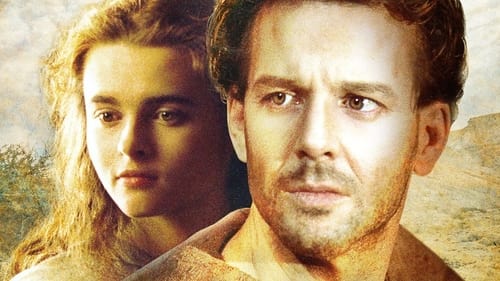
Screenplay
En 1226, después de la muerte de San Francisco de Asís, sus amigos más cercanos, entre ellos Santa Clara, hablan de la vida del santo. Francisco nace en el seno de una familia de ricos comerciantes y vive rodeado de comodidades. Pero un día se encuentra cara a cara con el sufrimiento humano, y su existencia cambia radicalmente: la existencia de Dios se le hizo patente a través de los pobres, y desde entonces decidió vivir como Jesucristo, renunciando a todas sus riquezas y viviendo en comunión con la naturaleza. (FILMAFFINITY)

Story
En 1226, después de la muerte de San Francisco de Asís, sus amigos más cercanos, entre ellos Santa Clara, hablan de la vida del santo. Francisco nace en el seno de una familia de ricos comerciantes y vive rodeado de comodidades. Pero un día se encuentra cara a cara con el sufrimiento humano, y su existencia cambia radicalmente: la existencia de Dios se le hizo patente a través de los pobres, y desde entonces decidió vivir como Jesucristo, renunciando a todas sus riquezas y viviendo en comunión con la naturaleza. (FILMAFFINITY)

Director
En 1226, después de la muerte de San Francisco de Asís, sus amigos más cercanos, entre ellos Santa Clara, hablan de la vida del santo. Francisco nace en el seno de una familia de ricos comerciantes y vive rodeado de comodidades. Pero un día se encuentra cara a cara con el sufrimiento humano, y su existencia cambia radicalmente: la existencia de Dios se le hizo patente a través de los pobres, y desde entonces decidió vivir como Jesucristo, renunciando a todas sus riquezas y viviendo en comunión con la naturaleza. (FILMAFFINITY)
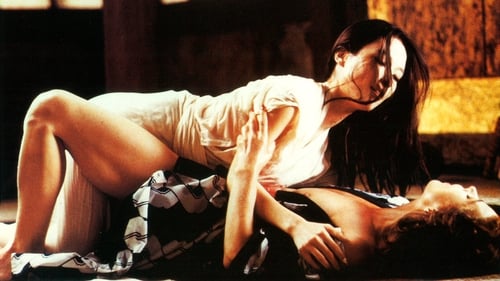
Writer
Durante la época nazi, la vida de la esposa de un alto cargo transcurre entre clases de pintura, dibujo y partidos de tenis, aunque todo se verá trastocado cuando inicia una relación lésbica con una bella joven hija del embajador japonés.

Director
Durante la época nazi, la vida de la esposa de un alto cargo transcurre entre clases de pintura, dibujo y partidos de tenis, aunque todo se verá trastocado cuando inicia una relación lésbica con una bella joven hija del embajador japonés.

Screenplay
Matthew (Tom Berenger) es un ejecutivo que es enviado por negocios a Marruecos. Allí conoce a la atractiva Nina (Eleonora Giorgi) por la que pronto se siente atraído. Enseguida descubre que la chica tiene una extraña relación con Enrico (Marcello Mastroianni), un tipo que está en la cárcel acusado de haber matado a la madre de Nina...

Director
Matthew (Tom Berenger) es un ejecutivo que es enviado por negocios a Marruecos. Allí conoce a la atractiva Nina (Eleonora Giorgi) por la que pronto se siente atraído. Enseguida descubre que la chica tiene una extraña relación con Enrico (Marcello Mastroianni), un tipo que está en la cárcel acusado de haber matado a la madre de Nina...
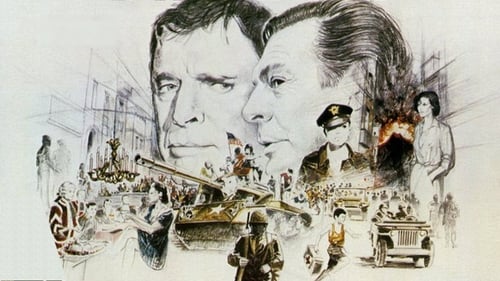
Screenplay
Nápoles, año 1943, en plena Segunda Guerra Mundial. La ciudad acaba de ser liberada por las tropas americanas en una época en la que nadie sabe cuándo acaba la guerra ni dónde empieza la paz; vencedores y vencidos se enfrentan...

Director
Nápoles, año 1943, en plena Segunda Guerra Mundial. La ciudad acaba de ser liberada por las tropas americanas en una época en la que nadie sabe cuándo acaba la guerra ni dónde empieza la paz; vencedores y vencidos se enfrentan...
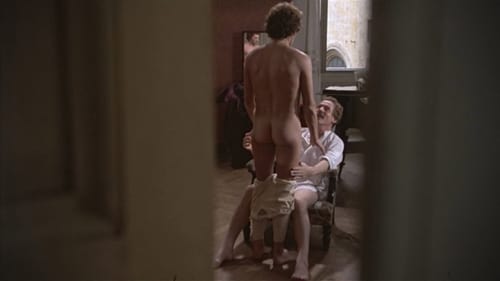
Screenplay
En 1899, Paul conoce a la joven judía rusa Salomé e inmediatamente quiere casarse con ella. Ella en cambio, propone una relación más ambigua: Ellos dos y su amigo, Friedrich Nietzsche.Con un título que hace referencia a la obra del famoso filósofo alemán, "Más allá del bien y del mal. Preludio de una filosofía del futuro", se esconde este drama que profundiza en la intensa relación que se estableció en la década de 1880 entre Nietzsche, la escritora y psicoanalista Lou Salome y el también filósofo Paul Rée.

Director
En 1899, Paul conoce a la joven judía rusa Salomé e inmediatamente quiere casarse con ella. Ella en cambio, propone una relación más ambigua: Ellos dos y su amigo, Friedrich Nietzsche.Con un título que hace referencia a la obra del famoso filósofo alemán, "Más allá del bien y del mal. Preludio de una filosofía del futuro", se esconde este drama que profundiza en la intensa relación que se estableció en la década de 1880 entre Nietzsche, la escritora y psicoanalista Lou Salome y el también filósofo Paul Rée.
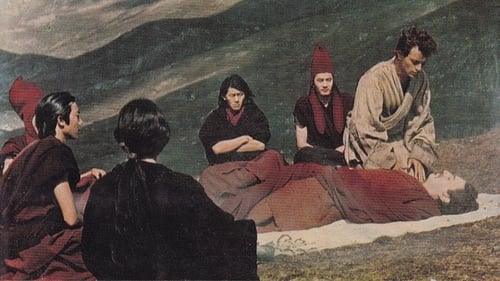
Screenplay
A story inspired by a classic text of Tibetan literature, Milarepa moves back and forth in time between the story of the title character, a mystic of the eleventh century and a young westerner whose travails are not very different, both being torn between the search for knowledge and a quest for power.

Director
A story inspired by a classic text of Tibetan literature, Milarepa moves back and forth in time between the story of the title character, a mystic of the eleventh century and a young westerner whose travails are not very different, both being torn between the search for knowledge and a quest for power.

A filmed record of a bizarre garden party organized to pay a fine incurred by singer Ulla for "liberating a chandelier from Harrods."
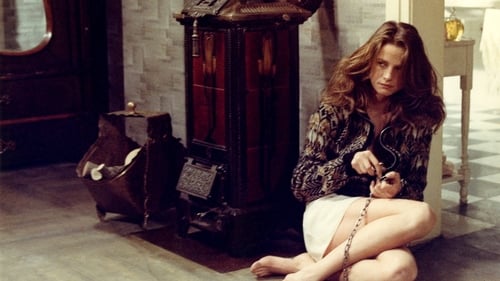
Screenplay
Viena, 1957. Una mujer judía, esposa de un director de orquesta, reconoce en el portero del hotel en el que se aloja al oficial nazi que, en un campo de concentración, la había utilizado como objeto sexual en una tortuosa relación sadomasoquista.

Director
Viena, 1957. Una mujer judía, esposa de un director de orquesta, reconoce en el portero del hotel en el que se aloja al oficial nazi que, en un campo de concentración, la había utilizado como objeto sexual en una tortuosa relación sadomasoquista.

Writer
A forty year old woman, who has been in an asylum, goes to live with her brother's family. She proves incapable of adapting herself to family life, takes refuge in the country alone with her memories, and is later returned to the asylum.

Director
A forty year old woman, who has been in an asylum, goes to live with her brother's family. She proves incapable of adapting herself to family life, takes refuge in the country alone with her memories, and is later returned to the asylum.
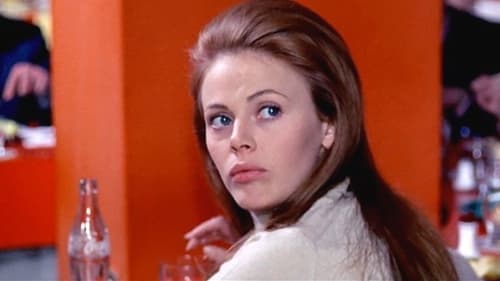
Writer
On the streets of a damp metropolis lie the corpses of hundreds and hundreds of boys and girls. No one can give them a resting place because of a law enacted by a repressive State. But the young Antigone, with the help of a foreigner, Tiresias, violates this rule in the name of pietas, undermining the established order.

Director
On the streets of a damp metropolis lie the corpses of hundreds and hundreds of boys and girls. No one can give them a resting place because of a law enacted by a repressive State. But the young Antigone, with the help of a foreigner, Tiresias, violates this rule in the name of pietas, undermining the established order.

Writer
With a screenplay by Liliana Cavani, this film is based on a true story, events that happened in Alabama in 1965. A daughter of Italian immigrants, Liuzzo participated in the march led by Martin Luther King. As she returned home, she was accosted and murdered by four members of the Ku Klux Klan.
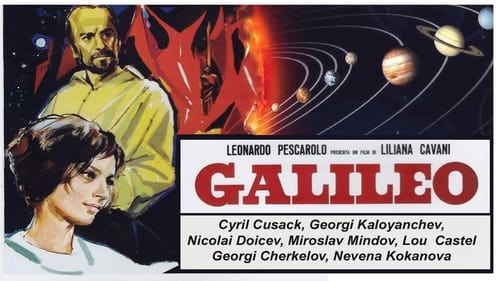
Screenplay
A humble scientist from Padua proves that the Earth revolves and that it is not the center of the universe.

Story
A humble scientist from Padua proves that the Earth revolves and that it is not the center of the universe.

Director
A humble scientist from Padua proves that the Earth revolves and that it is not the center of the universe.

Screenplay
Cavani made her first full-length feature film in 1966 with Francis of Assisi (Francesco d'Assisi). Made for television and aired in two parts, it was deeply influenced by the style of Rossellini and the atmosphere typical of the films of Pasolini. Made in a period of political unrest, it was to become a kind of manifesto of dissenting Catholicism. Starring Lou Castel, it portrays Francis of Assisi as a slightly depressed protestor and an avid, albeit mad, supporter of armed brotherhood. The ideal defender of the 1968 student movement. The film was a great success, but also triggered many negative reactions. It was called "heretical, blasphemous and offensive for the faith of the Italian people". It was the first of many polemical reactions to Cavani's work.

Director
Cavani made her first full-length feature film in 1966 with Francis of Assisi (Francesco d'Assisi). Made for television and aired in two parts, it was deeply influenced by the style of Rossellini and the atmosphere typical of the films of Pasolini. Made in a period of political unrest, it was to become a kind of manifesto of dissenting Catholicism. Starring Lou Castel, it portrays Francis of Assisi as a slightly depressed protestor and an avid, albeit mad, supporter of armed brotherhood. The ideal defender of the 1968 student movement. The film was a great success, but also triggered many negative reactions. It was called "heretical, blasphemous and offensive for the faith of the Italian people". It was the first of many polemical reactions to Cavani's work.

Director
A documentary film: two generations reflect on World War II, twenty years after peace was declared in Europe.

Director
Documentary composed of interviews with female partisans who survived the German invasion of Italy in World War II.

Director
A documentary about the life and spirituality of Charles de Foucauld, a French priest who lived in the Sahara and was assassinated in 1916.

Director
A documentary about the trial of Philippe Pétain.

Director
A documentary about the urban housing crisis in three Italian cities, Turin, Naples, and Rome, during the 1960s.

Director
A documentary about Josef Stalin.

Writer
An early short film by Liliana Cavani that confronts the theme of discrimination.

Director
An early short film by Liliana Cavani that confronts the theme of discrimination.

Director
A documentary about the Third Reich.

Director
A documentary short.

Director
A documentary short.

Director
A documentary short.

Director
A documentary short.

Writer
An early short film by Liliana Cavani that confronts the theme of discrimination.

Director
An early short film by Liliana Cavani that confronts the theme of discrimination.
